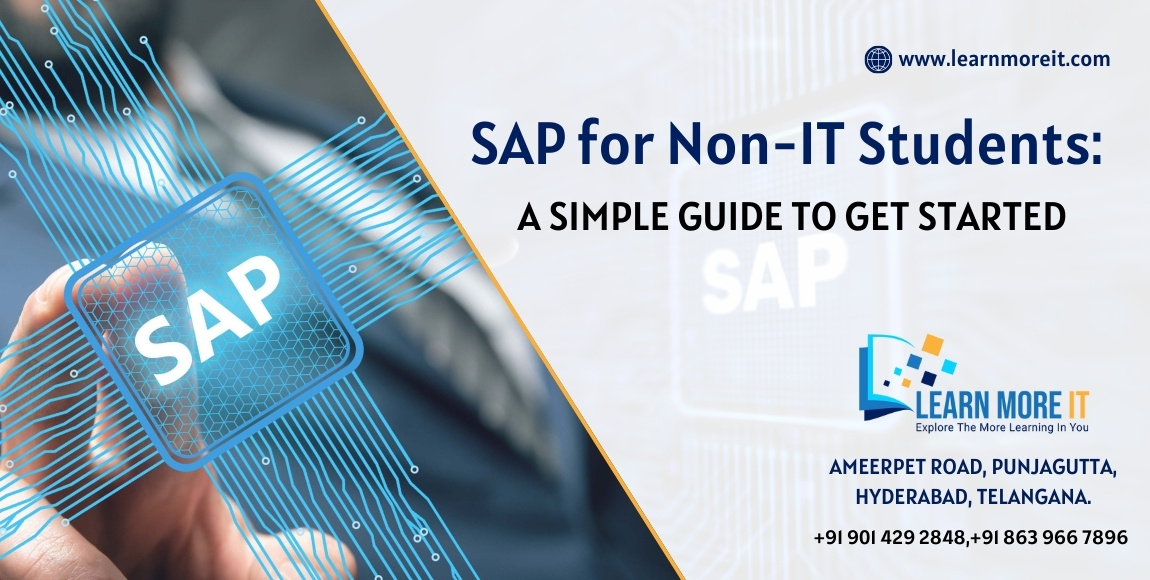In today’s tech-driven world, knowing how businesses run and having an understanding of tools like SAP (Systems, Applications, and Products in Data Processing) can set you apart in your career, even if you’re not from an IT background. SAP is a popular software that helps companies manage their daily operations, and learning it can unlock many opportunities. Don’t worry if you’re not tech-savvy—this guide will show you how to start your SAP journey, step by step!
1. Why SAP is Important
SAP is used by companies around the globe to handle things like finances, human resources, and supply chains. No matter your field of study—be it business, HR, or finance—knowing SAP can make you stand out to employers. It helps you understand how businesses work and gives you practical skills that are in demand.
2. Choose the Right SAP Module for You
SAP has many different parts (called modules), each focused on specific business functions. Here are some you might find interesting based on your area of study:
SAP FICO (Financial Accounting and Controlling): Great for finance and accounting students, this module teaches how to manage money and financial reports.
SAP MM (Material Management): If you’re into supply chain or logistics, this module covers how to manage inventory and purchasing.
SAP HCM (Human Capital Management): Ideal for HR students, this module focuses on employee management, payroll, and hiring processes.
SAP CRM (Customer Relationship Management): Perfect for marketing or sales students, this module teaches how to manage customer relationships and data.
3. Use Online Learning Resources
The internet is full of beginner-friendly SAP courses that you can take at your own pace. Some top places to start are:
SAP Learning Hub: This is SAP’s official site with loads of training materials and courses.
Coursera and Udemy: Both have SAP courses taught by experts, offering both free and paid options.
YouTube: You can find free tutorials that explain SAP in simple terms and show you how to use the software.
4. Join SAP Communities
A great way to learn effectively is by engaging and collaborating with others. Joining SAP communities will help you find answers to your questions and learn from experienced professionals.
SAP Community: A large network where SAP users and experts share tips and advice.
LinkedIn Groups: There are many LinkedIn groups dedicated to SAP, where you can meet other learners and professionals.
5. Get Practical Experience
Learning the theory is great, but getting hands-on experience will really help you understand SAP. Here’s how you can do that:
SAP Free Trials: SAP offers trial versions of its software, so you can practice using it without having to pay.
Internships: Look for internships that involve SAP. This will give you real-world experience.
University Projects: If your school has projects or case studies using SAP, take part in them. It’s a great way to practice what you learn.
6. Consider SAP Certification
Once you feel comfortable with SAP, think about getting certified. SAP course certifications prove your skills and can help you land better job opportunities. While they do require some investment, both in time and money, they can be a great boost for your career.
Conclusion
Even if you’re from a non-IT background, learning SAP is not only possible but can be a game-changer for your career. By understanding how it works, choosing the right modules, using online resources, getting involved in communities, and gaining hands-on experience, you can master SAP and set yourself up for success. Start learning today, and open the door to exciting job opportunities!
Good luck!

